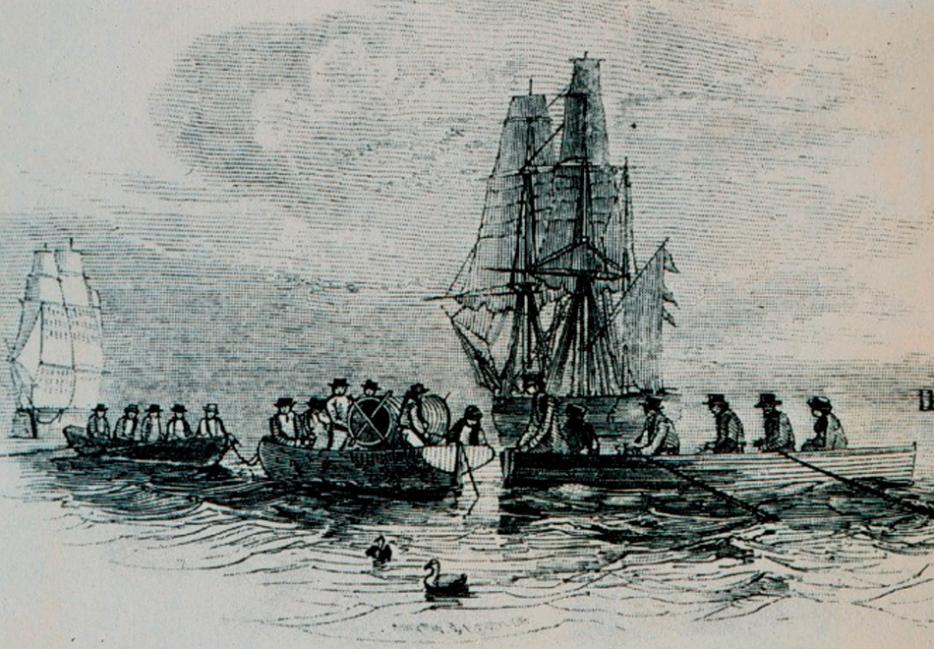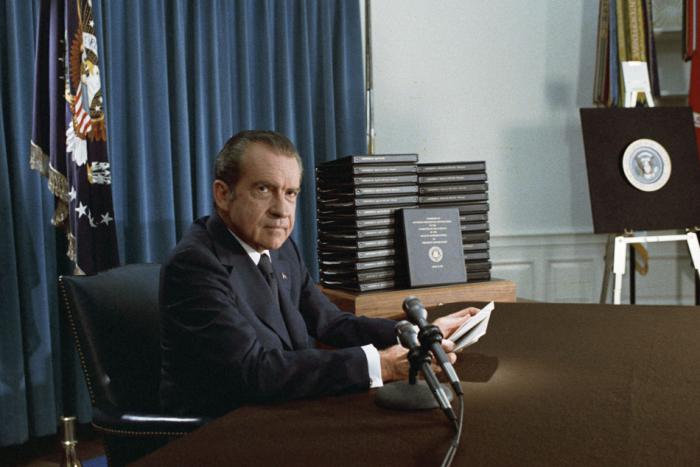The story of the original Franklin Expedition is basically a note-perfect case of nemesis following hubris: the ships Erebus and Terror set out from their English port in 1845, kitted out with modern gear, hoping to navigate the Northwest Passage. The Passage had other ideas. As it turned out, all that modern gear didn’t actually include adequate equipment to survive in the Arctic, and we’ve had evidence for decades now that the crews of Erebus and Terror died some spectacularly awful deaths, including signs of cannibalism.
All this, in part, because the upstanding British Admiralty couldn’t conceive of a universe in which they ought to pay some attention to the indigenous civilization of the Canadian Arctic, where the Inuit and others had been living for some time, and could have probably helped. Indeed, the Inuit did help Roald Amundsen when he made his (successful) voyage through the Passage—albeit in three years.
So it’s pretty perfect that after years—decades, even—of looking for Franklin’s final resting place, it turns out we should have been listening to the Inuit all along. The hubris of technology mixed up with our mythical north (only ever loosely associated with the actual north): it’s part of our heritage.
What the discovery of the shipwrecked Erebus (or maybe Terror) actually means for all of us will depend on your mileage, of course. If you’re a fan of the monarchy, you can stop hitting refresh on the spare royal baby news and note that the Queen congratulated us on finding the shattered timber in frigid waters.
What it isn’t, at all, is some important marker in Canada’s (probably doomed) quest to assert sovereignty over the Northwest Passage—no matter what the Prime Minister says. If modern day territorial rights could be granted based on a century-old failure to find Maritime trade routes, after all, then Spain would still own the rights to India. Canada’s right to govern the Passage, or not, will be determined like any civilized matter in the 21st century: on the goodwill of our neighbours, and on the advice of faceless bureaucrats trying to muddle through international politics.
The more substantial argument—that Franklin’s resting place marks the convergence of European and Inuit civilizations, and the beginning of Canada’s claim in the Arctic—is belied by the small matter of our terrible record with the Inuit on everything that isn’t symbolic.
(As a sidebar, it’s worth pointing out that the Americans seem to have never engaged with the notion that they’d be better off if the Passage were under national control, even if it’s not theirs. Oh well.)
Alas, it’s another example of the Conservatives turning the Arctic into something to thump our chests about (remember Hans Island? Don’t we all feel a little stupid about that now?) in lieu of actually doing much of anything there at all.
Earlier this summer, Stephen Harper made his regular trip to the Canadian north, touting for the umpteenth time his government’s support for a road from Inuvik to Tuktoyaktuk, and fair enough: the lack of roads, and connections to the North American economy in general, are part of what make northern living so hard. But other promises have been left unfulfilled, such as the deepwater port Harper originally announced in 2007. A tenuously scientific mission has had a success, and that may be worth cheering on its own terms, but it’s not a real policy for the Arctic. It may, however, be enough of a sound bite to get Harper through the next election (though I’d bet against it).
Meanwhile, too much coverage of the Franklin mission (including, perhaps, this very article) has omitted or downplayed our country’s actual trans-partisan Arctic policy: ambivalence toward halting global climate change, and enthusiasm about selling bitumen from the oil sands. Make no mistake: the landscape of the Arctic is changing rapidly and dramatically, and it’s not necessarily a good thing that the Arctic is more accessible today than nature intended. Sure, cruise ships have new routes to ply, but that’s not the only mark of progress.
On that note, the United Nations says we’re still basically boned, and the levels of CO2 in the atmosphere are accelerating at alarming rates. So take a good look at the Arctic now—it may not be there for long.






